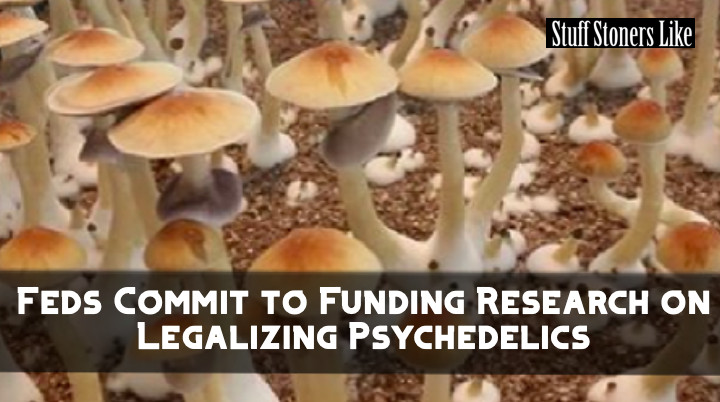
As psychedelic reform movements gain momentum across the United States, the National Institute on Drug Abuse (NIDA) has taken notice. In a recent “notice of special interest,” NIDA highlighted the rapid spread of psychedelic law reforms in various jurisdictions, including legalization, decriminalization, and reduced penalties. With the changing landscape, NIDA recognizes the need for research to understand the potential impact of these evolving laws on consumption trends, public health outcomes, and other important factors.
The Changing Legal Landscape: NIDA points to notable developments in psychedelic legislation, such as Oregon’s legalization of psilocybin services and Colorado’s broader legalization of psychedelics, along with the creation of “healing centers” for administration. Alongside these state-level policy changes, cities across the nation have also enacted local decriminalization measures. The diverse approaches implemented in different jurisdictions present an opportunity to examine the effects and outcomes of these legal shifts.
Areas of Research Interest: To gain a comprehensive understanding of the impact of evolving psychedelic laws, NIDA has outlined several key research areas of interest:
- Rates of Use: Investigating the relationship between decriminalization or legalization of psychedelic and dissociative drugs and their rates of use among different populations.
- Public Health Outcomes: Examining the link between psychedelic and dissociative drug use and its impact on public health outcomes, including harms, abuse potential, and related concerns.
- Regulatory Frameworks: Assessing the impact of different regulatory frameworks (e.g., taxation, labeling, retail sales, pricing, marketing) on health and incarceration outcomes, particularly among vulnerable populations.
- Community Impact: Examining the placement of retailers and centers for psychedelic and dissociative drug use and their impact on surrounding communities.
- Comparative Analysis: Understanding the similarities and differences between psychedelic and dissociative drug use and abuse potential in comparison to other substances like alcohol, tobacco, or cannabis.
- Misuse Prevention: Exploring strategies to prevent psychedelic misuse or diversion for use by individuals outside the designated centers or purposes.
- Long-term Impacts: Investigating the long-term impacts of supervised psychedelic or dissociative drug use within centers on the seeking and misuse of other substances.
- Perceptions of Harm: Evaluating perceptions of harm associated with psychedelic or dissociative drugs following policy enactments and implementation.
Support for Psychedelic Research: NIDA’s call for research comes in the wake of increased recognition of psychedelics’ therapeutic potential. NIDA Director Nora Volkow has acknowledged emerging evidence supporting psychedelics’ efficacy in treating certain mental health conditions. The agency is committed to supporting studies exploring the therapeutic benefits and risks of these substances.
In Congress, bipartisan support for psychedelic research is also growing. Lawmakers have introduced bills to streamline federal rescheduling of “breakthrough therapies” like psilocybin and MDMA to promote research and development. Additionally, efforts have been made to clarify access to Schedule I substances for seriously ill patients through federal “Right to Try” laws.
With psychedelic reform movements gaining traction and an evolving legal landscape, NIDA recognizes the need for comprehensive research to understand the impacts of changing laws surrounding psychedelics. By studying consumption trends, public health outcomes, and regulatory frameworks, researchers can contribute valuable insights to inform evidence-based policies and practices. The growing support in Congress further emphasizes the importance of exploring the therapeutic potential of psychedelics and their role in mental health treatment.
Leave a Reply